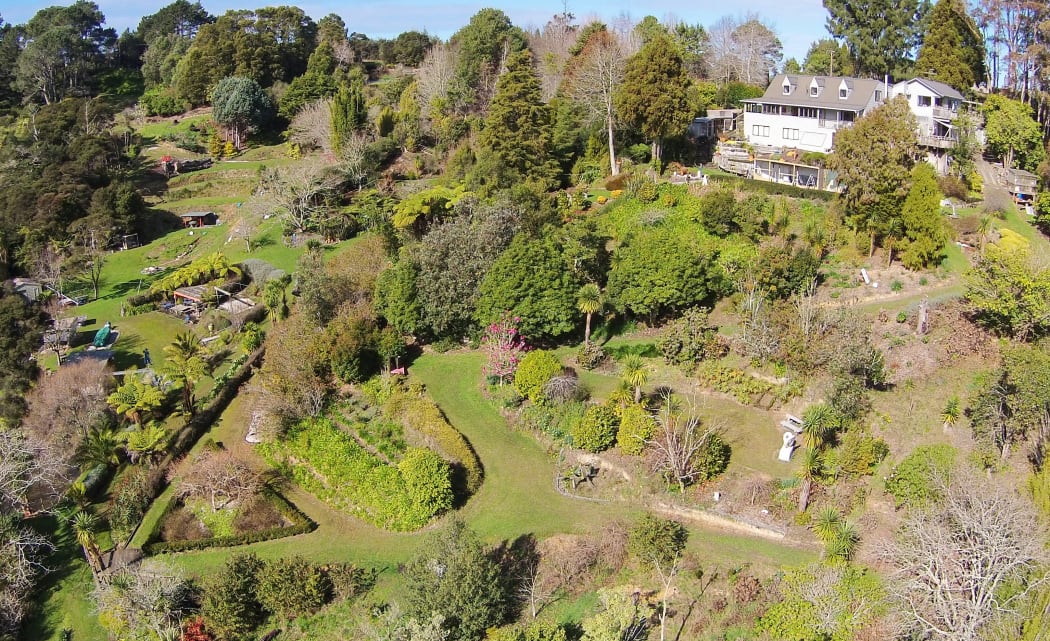Dave Stephens is 37 years into his 200-year plan.
From bare land in 1979 he began building his 10 acre park, which now has 10,000 trees and shrubs, thousands of bulbs and dozens of garden features and artefacts. His property also houses a pet cemetery, where he has officiated more than 1300 burials and hundreds of cremations.

Dave Stephens has created EIREVER. Photo: Supplied
Located at the top of the Albany Hills and just 20 minutes from Auckland’s Queen street, Stevens has named the property Eirever, an ananym of the word ‘reverie’. Eirever has been about building a dream for Stevens.
“It’s my philosophical sandpit and I go out and play in it.”
The pet cemetery opened in 1994, with Stevens spreading the word by sending out flyers and reaching out to the veterinary industry.
“When I started building the park, I got to the point where it was looking pretty good after about 15 years and I needed to find a way for people to enjoy it, other than just my friends who would come over for barbeques…
“The pet cemetery ticked my personal requirement for having people enjoy what I was doing. It’s like if you’re an artist - and I suppose I am on the landscape - if people don’t come into the gallery and look at your picture it’s a bit of a disappointment.”
Charges for a burial plot range in price from $315 for a small cat to $615 for a large dog.
He says there is no rule book for grieving the death of a pet the same way there is for the death of human loved ones.
“With pets there are no protocols and people don’t like to address it in advance. So suddenly their dog is about to die… and there’s a mad panic of what they’re going to do and then they’ve got to make decisions in emotional turmoil.”
Stevens says he does not follow any set procedure or ceremony for the animal funerals at his park and he prefers instead to “address the situation with the people as they are and talk to them in my way”.
Graves are marked with a simple cobblestone that has been engraved with the pet’s name.
With changing demographics and people living on smaller sections, not everyone has the option of burying their pet in their own backyard, Stevens says. He hopes Eirever will serve that purpose.
“For people who culturally and emotionally require a burial there are very few places in the country where you can go for that.”
A lot of the people who go to Stevens have had more communication with their pet than any other living creature, he says.
“There are lots of fantastic stories that show that our relationship with pets is very deep and very complicated. When a pet loss occurs, it is more significant than when a human dies, because we are more attuned for that, we are trained for it, but pets often come as a surprise.”
The plan is to keep Eirever open beyond Stevens’ lifetime, hence the 200-year plan. The property is owned by a trustee company formed by Stevens and there is a memorandum of wishes he has set up, which includes someone living in the cottage to tend to the gardens.
“I have spent a lot of money and a lot of time to give the property away into the future so it can continue as a park with other people utilising the property for various other things, and I don’t know what quite they will be.”

